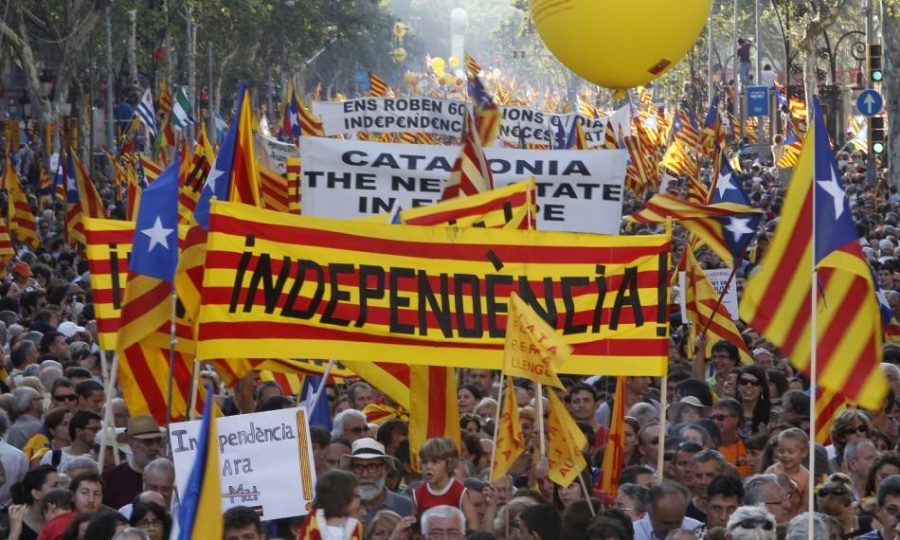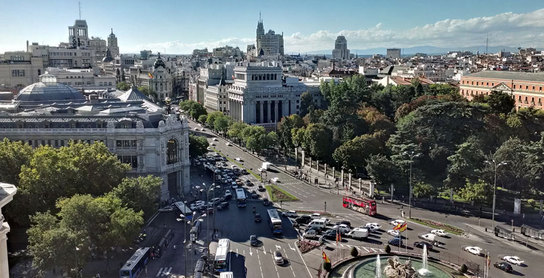With the pending secession of the autonomous Catalonia, the political landscape of Spain has been notably altered. This poses a multitude of problems for both the nation of Spain and Catalonia.
For Spain, Catalan independence would mean losing its most industrialized region and would put Spain in a much weaker financial state.
Although the push for secession seems like it has stalled out because the governments of both Catalonia and Spain have had talks to settle the matter for now, this move could potentially be end up being disastrous for the Catalan government, if carried out.
The central government of Spain gave Catalonia’s vastly liberal representatives until Thursday, to completely halt the movement of secession from Spain.
Andres Cayuela, a senior student at Suffolk who was born and raised in Spain discussed how he understands the movement and agrees with the basis of more government representation, but is hesitant about Catalonia departing from the EU. He also brought to light how Catalans have been neglected in past elections by the Spanish government.
“We tried our best in past elections and now people feel they need to seek independence themselves,” said Cayuela. “But I don’t want them to become independent from the EU because even with its issues, it is still something that we have always been apart of.”
The Oct. 1 Catalan Independence Referendum was seemingly a replica of just that. 92.01 percent of Catalan people voted in favor of independence, but there was a dismal 43.03 percent voter turnout.
“The low turnout I believe comes from the belief that the transition to government recognition can be done a different way,” said Cayuela. “A lot of these people are viewed as radicals and while that isn’t completely fair, not everyone is completely ready to separate from Spain.”
The referendum wasn’t a peaceful event, and that caught the eyes of people all over Europe. Riots televised by major news networks during the Oct. 1 vote depicted Catalan firefighters forming a human chain around the raucous voters to protect them, symbolically and physically, from the Spanish police. Cayuela discussed how the police used force against the individuals labelled “radicals” and how the whole matter was completely unacceptable.

“The police force was uncalled for and disgusting, ballots being literally ripped out of people’s hands,” Cayuela said. “For such a significant event, the police response disgusted the people of Catalonia and the rest of the EU.”
The last couple weeks have stirred up conversations throughout Spain that will continue to probe the citizens past the attempt at independence. As this situation at the surface is seemingly coming to a close, many social, political and economic doors have been opened in Spain and all of Europe.
“Catalonia has been part of Spain for hundreds of years,” said Cayuela. “There will be people that want change and people that don’t, and that should be in line with the central government.”
In an recent interview with The Suffolk Journal, government professor at Suffolk University Madrid Campus Ana Belen Soage shared why she believes that people in Catalonia have spoken about their mistreatment by the national government in Spain.
“Catalan independence seekers have recently begun to complain that they put in way more than they get back in return,” said Belen Soage.
Soage went on to discuss how many of the political issues in Spain regarding Catalonia arose from overlying economic problems that came up between the nation and its subpart. She said that what a lot of people may not realize is that Catalonia may face indefinite dilemmas if the secession were to take shape. Catalonia’s businesses and public spending have already taken a hit as their existence as an autonomous has been glamoured over in the last decade.
“It is a very prosperous part of Spain and the Catalan government wants this to be reflected in politics, like it should,” she said. “However, Catalonia would run into many fees and other issues in the process of disbanding from Spain.”
Catalonia would be forced to leave the European Union (EU) with its departure from Spain, and a smooth transition back into the EU after succession looks to be unlikely with Spain set to veto any attempt of Catalonia joining the union. Additionally, members of the French and German government have come out and said that they would also veto. any request to rejoin.












